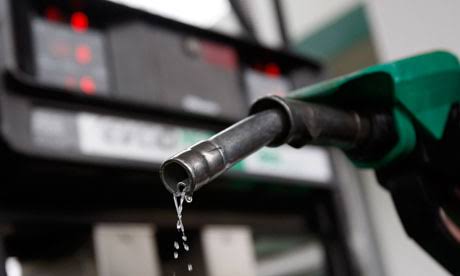The Association of Capital Market Academics of Nigeria (ACMAN) has appealed to the Federal Government to scale up efforts to ameliorate difficulties faced by Nigerians due to petrol subsidy removal.
The President of ACMAN, Prof. Uche Uwaleke said this in a news briefing on Wednesday in Abuja while assessing key policy measures rolled out by President Bola Tinubu in his first 100 days in office.
ACMAN is the umbrella body of lecturers and researchers in Nigeria’s university system and the financial market industry committed to development of Nigerian capital market through teaching, research and advocacy.
The event was held with a view to offering suggestions regarding the effective implementation of the policies.
Uwaleke commended the Federal Government for policies to end fuel subsidy and unify multiple exchange rates, saying that they seemed to boost confidence in the economy.
According to Uwaleke, the two policies which defined the administration’s first 100 days in office were largely welcomed by both domestic and foreign investors.
“Nowhere has this confidence manifested better than the stock market where the benchmark index (NGX ASI) hits the highest level ever in the history of Nigerian stock market.
“It is over 68000 points with year-to-date return now above 30 per cent.
“But these reforms have left in their wake unpalatable outcomes which have made life more difficult especially for the ordinary Nigerian.
“Inflation rate is on the rise with food prices largely unaffordable.
“There is evidence of declining economic activities with fewer vehicles on the roads and reduced work days in both private and public sectors.
“Similarly, not a few micro and small businesses have reduced their scale of operations due largely to inability to afford the high cost of fuel,’’ Uwaleke said.
He emphasised the need for a reduction in cost of governance and the money channelled toward cushioning the effects of petrol subsidy removal.
Uwaleke urged the Federal Government to scale up interventions in Micro Small and Medium Enterprises (MSMEs) and agriculture, saying that the current size is small at less than One trillion Naira.
“ We are convinced that more money can be made available to cushion the negative impact of fuel subsidy removal from reducing cost of governance, plugging revenue leakages and tackling the challenge of crude oil theft,’’ he said.
Uwaleke said that Nigeria looses over one billion dollars to crude oil theft monthly.
“A recent OPEC report puts the country’s crude oil output at 1.2mbpd indicating huge volume deficit of circa 500,000mbpd compared to the 2023 budget target of 1.69mbpd and the OPEC quota of 1.74mbpd.
“At a conservative crude oil price of USD85 per barrel, the loss to Nigeria in one month is over $1 billion.
“We believe that swiftly dealing with the menace of crude oil theft will put the Federal Government in a stronger position to scale up compensation measures.
“This includes the implementation of a new minimum wage for workers as well as the programme on food security expected to drive down prices,’’ he said.
Uwaleke further commended Tinubu for implementing some Executive Orders to suspend certain fiscal policies contained in the Finance Act 2023.
He also applauded the setting up of Presidential Committee on Fiscal Policy and Tax Reforms and the unveiling of his eight-point agenda.
Uwaleke also hailed Tinubu’s recent engagements with international investors in India and the UAE.
“We are excited by their prospects and hope the pledges made by these investors materialise in view of their potential long-term positive impact on external reserves, forex liquidity and job opportunities.
“To this end, the government must walk the talk regarding aspects of its eight-point agenda to do with security, rule of law and anti-corruption,’’ Uwaleke said.
He said that ACMAN was concerned that the forex market remained illiquid “and volatility in exchange rates has persisted despite the naira float policy that followed the unification of exchange rates’’.
“To make matters worse, the parallel premium has continued to widen seemingly defeating one of the objectives of the naira float,” Uwaleke said.
In view of the huge imports from China, Uwaleke said the association is of the view that the Central Bank of Nigeria (CBN) revisits the currency swap arrangement with China.
According to him, to a scale that reduces significantly the dependence on US dollars for imports from China.
On the supply side, he called for deliberate efforts to diversify the export base.
“The government should give support to the CBN in the implementation of RT 200 programme especially in relation to port reforms while it works on the ease of doing business to pave way for increased foreign investments.
“We believe that unlocking value in dead assets is one way to improve the country’s fiscal liquidity.
“We encourage the new administration to speed up the process of privatising government enterprises, including the NNPCL, not by selling to a few individuals or companies but through the capital market for transparency and inclusiveness,’’ he said.
Uwaleke also urged the Federal Government to explore asset securitisation as a means of financing developmental projects in the country.








